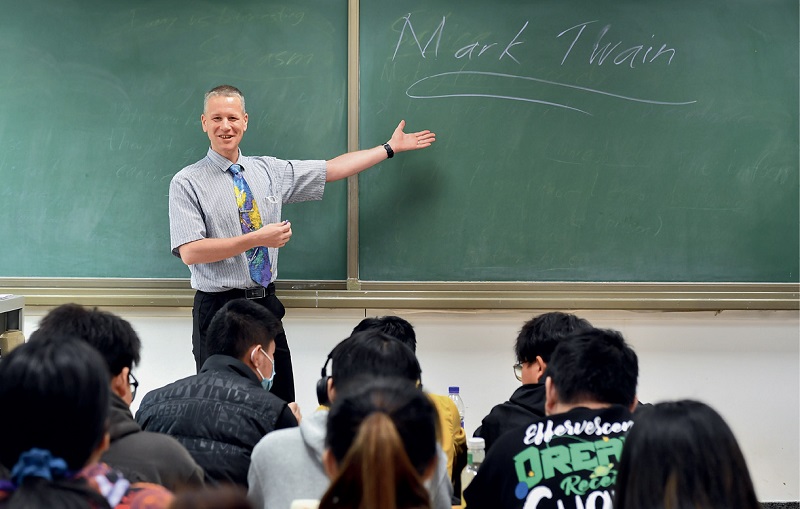Thomas Karlsson donated blood at a blood donation center in Beijing in early June, marking his 41st blood donation in China! He received a medal for this civic act. Thomas Karlsson, PhD, is a 45-year-old Swedish citizen and holder of a Chinese green card. He is passionate about China, charity, education, family and lifelong learning. He teaches at Beijing Union University, which he considers his second home.
“Am I proud of the 41st or the first? Hard to say,” Thomas replies on a Chinese blog.
But he admits that being pricked by the needle under the camera flashes and then undergoing an interview in Chinese was not very easy!
In fact, he concludes that it was a huge honor to be in this situation. Being interviewed by the Red Cross on June 3 for winning a gold medal for donating blood platelets 41 times in Beijing gave him a great sense of pride. He hopes my story can inspire others to find their local blood bank and contribute to a stable public blood supply.
That day, Thomas had with him one of his students, Han Xufeng, an English student at Beijing Union University. He made his first donation right next to him. “Honestly, I can’t say if I was more proud of my 41st donation or being part of his first foray into this world,” he explained in a Chinese newspaper blog.
An essential gift in China
A blood donation could save three lives, and in China a donor can donate every six months. People in China can also choose to donate only blood platelets. These are necessary for many cancer patients; one unit gives the recipient at least another 24 hours to live, while doctors find ways to treat their illnesses. A doctor writes in the blog: “Unfortunately, blood cannot be artificially made and is very perishable, so there is always more need than supply. In other words, when we need it, we have to rely on strangers to offer their blood. Meanwhile, ensuring an adequate blood supply requires enormous social coordination.”
A necessary citizenship education?
Unfortunately, it is difficult to achieve this coordinated social action. The difficulty often lies in the fact that it can be so tempting for individuals to act in their narrow self-interest instead of doing what is best for society. This was one of the many valuable lessons that professors at the University of International Business and Economics imparted to Thomas. He says that in game theory, this is called the “free rider” problem. In the case of blood donations, many people don’t realize that choosing not to donate means you’re surfing the system. “We all expect blood to be available when we need it.”
However, an adequate blood supply can only be guaranteed if enough healthy people take the time in their busy lives to visit the local blood bank and endure the slight pain of a needle puncturing the skin.
The Chinese government’s solution
The Chinese government has created an ingenious incentive system to promote the socially responsible act of blood donation. Donors have free access to blood should they need it in the future. This coverage also covers next of kin, so every donation is, in fact, an investment in the future health of your entire family. It is often forgotten that every donor is screened for blood-related infectious diseases, which means that a successful donation is also a guarantee of health. In addition, donors also get travel reimbursement, a lunch voucher, a redeemable gift voucher and a chance to win bronze, silver or gold medals of recognition from the Beijing Municipal Government.
Hope this encourages the Chinese and other Europeans! Congratulations Thomas Karlsson, a fine example!


